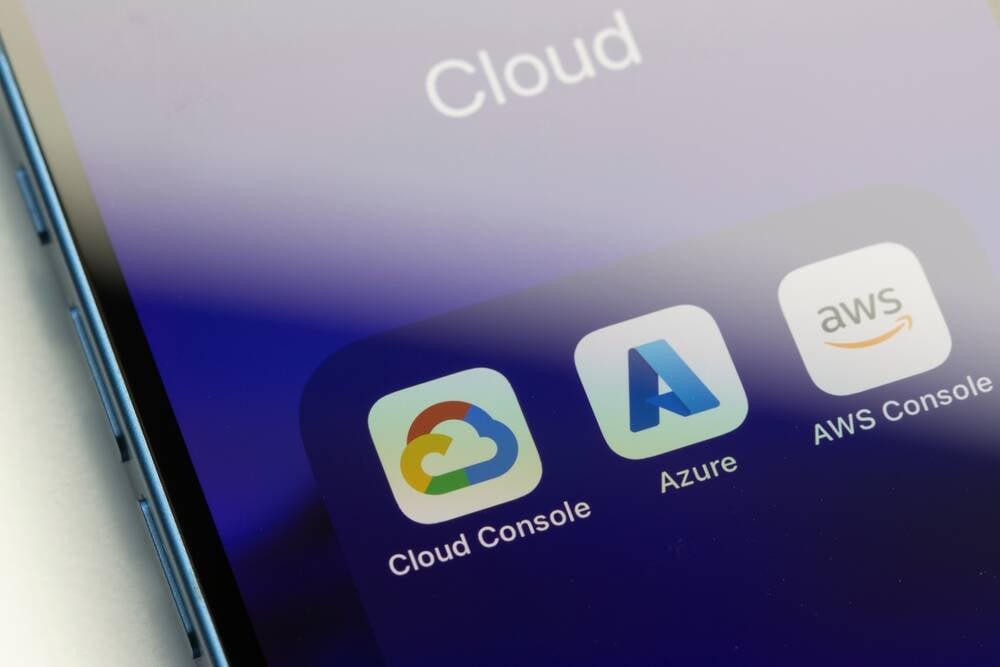Google Wants Regulators To Take Microsoft Down A Notch Before It Stifles AI

Updated Google has again stoked fears that rival Microsoft is using anticompetitive business practices and licenses to establish a cloud monopoly, and is calling on regulators to take action.
In an interview with Reuters, Google Cloud VP Amit Zavery alleged that Microsoft is using many of the same tricks that helped it gain a dominant position in the on-prem software market to establish a similar monopoly in cloud applications.
The ironic bit of all this is of course Google itself maintains an effective monopoly on search. But in the public cloud, the tech titan remains an underdog – trailing AWS, Microsoft Azure, and Alibaba Cloud with 7.5 percent of global market share, according to Gartner.
"They are creating this whole walled garden, which is completely controlled and owned by Microsoft, and customers who want to do any of this stuff, you have to go to Microsoft only," Google's Zavery complained.
If this sounds at all familiar, Zavery's comments are just the latest in a steady drum beat of complaints and antitrust rhetoric lodged against Microsoft in what can best be described as an ongoing effort to weaponize regulators in the US, Europe, and UK against Redmond.
The central issue behind Google's beef with the Windows giant comes down to licensing practices that either prevent or make it more expensive to deploy Microsoft's software platforms on third-party clouds – thereby creating an incentive to deploy on Azure.
"The complex web of licensing restrictions includes picking and choosing who their customers can work with and how; charging 5x the cost if customers decide to use certain competitors' clouds," Zavery complained in a screed last month. "These and other restrictions have no technical basis and may impose a 300 percent cost increase to customers."
Microsoft is forcing customers to go to Azure in many ways
It's 2024 and the entire industry wants add generative AI models and capabilities into products and services. Zavery's antitrust crusade against Microsoft therefore adds a heartfelt plea: Won't somebody please think of the artificial intelligence?
"If Microsoft cloud doesn't remain open, we will have issues and long-term problems, even in next-generation technologies like AI, because Microsoft is forcing customers to go to Azure in many ways," Zavery argued.
Reading between the lines, it seems Zavery's argument is that unless regulators do something, Microsoft's policies may make the market for generative AI products less competitive. And Google would know what tactics to corner a market look like, given its dominance of search.
Microsoft has been aggressive in its quest to integrate close partner OpenAI's models into its product stack – including Office 365, GitHub Copilot, and of course its Bing Chatbot. But it's not like Google has been sitting still. The search giant has closely mirrored Microsoft's developments in these arenas – with services like its Bard and later Gemini chatbots and Workspace products.
The Register reached out to Microsoft for comment regarding Google Cloud's allegations and we'll let you know if we hear anything back.
- It's crazy but it's true: Apple rejected Bing for wrong answers about Annie Lennox
- Date set for epic Amazon-FTC antitrust showdown
- Europe loosens the straps tying Apple and Microsoft to tough antitrust rules
- FCC Commissioner calls for crackdown on Apple's iMessage gatekeeping
Google and, to some extent, AWS have been quite successful getting competition watchdogs in the US, UK, and EU to consider Microsoft's market power. The search giant has launched numerous complaints against Microsoft, alleging unfair business practices.
As we previously reported, the UK's competition watchdog launched an investigation last year into the health of cloud competition in the country. Meanwhile, the US Federal Trade Commission and European Union have both launched antitrust investigations into Microsoft and other major cloud service providers at Google's urging.
While Google, and in some cases AWS, have been quick to call out Microsoft as the bad guy, many of these investigations are aimed at the broader cloud market. Therefore Zavery must understand that he's opening Google up to additional scrutiny. As such, the Chocolate Factory isn't just trying to get regulators to act against competitors down a notch – it's also taken actions like waiving data egress that are seen as an example of market power at work.
It seems Google's strategy isn't so much "don't be evil," as "be less evil than rivals." ®
Updated to add
“As the latest independent data shows, competition between cloud hyperscalers remains healthy," a Redmond spokesperson told The Register. "In 2023, Microsoft and Google made small gains on AWS, which continues to remain the global market leader by a significant margin."
From Chip War To Cloud War: The Next Frontier In Global Tech Competition
The global chip war, characterized by intense competition among nations and corporations for supremacy in semiconductor ... Read more
The High Stakes Of Tech Regulation: Security Risks And Market Dynamics
The influence of tech giants in the global economy continues to grow, raising crucial questions about how to balance sec... Read more
The Tyranny Of Instagram Interiors: Why It's Time To Break Free From Algorithm-Driven Aesthetics
Instagram has become a dominant force in shaping interior design trends, offering a seemingly endless stream of inspirat... Read more
The Data Crunch In AI: Strategies For Sustainability
Exploring solutions to the imminent exhaustion of internet data for AI training.As the artificial intelligence (AI) indu... Read more
Google Abandons Four-Year Effort To Remove Cookies From Chrome Browser
After four years of dedicated effort, Google has decided to abandon its plan to remove third-party cookies from its Chro... Read more
LinkedIn Embraces AI And Gamification To Drive User Engagement And Revenue
In an effort to tackle slowing revenue growth and enhance user engagement, LinkedIn is turning to artificial intelligenc... Read more

